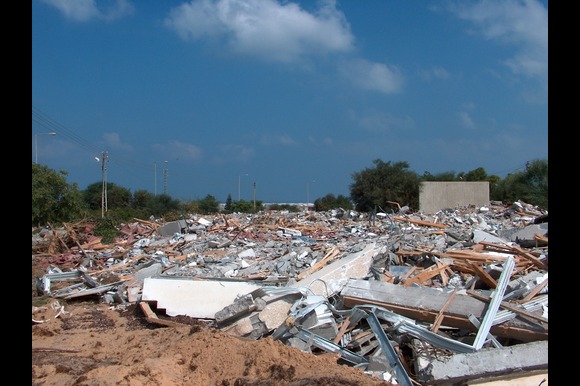Israel is insisting on the release of all 50 hostages still held in Gaza, according to an Israeli official, raising doubts over whether it will accept a newly proposed 60-day ceasefire deal approved by Hamas on Monday.
The official stated that the demand aligns with “the principles set by the cabinet to end the war,” while stopping short of outright rejecting the latest proposal mediated by Qatar and Egypt.
Qatari officials described the new ceasefire plan as “almost identical” to one previously accepted by Israel and presented by US envoy Steve Witkoff in June. Under the terms of the deal, Hamas would release approximately half the hostages during the truce.
Palestinian sources said the initial release would include 10 living hostages and the remains of 18 others. Negotiations would then continue for a permanent ceasefire and the return of the remaining captives. However, Israel estimates that only 20 of the 50 hostages are still alive, nearly two years into the war.
Prime Minister Benjamin Netanyahu has not publicly addressed the updated plan. Still, he remarked on Monday that Hamas is “under immense pressure,” suggesting internal challenges facing the armed group.
Meanwhile, Israel’s cabinet is expected later this week to approve the military’s plan to occupy Gaza City. Intensified Israeli airstrikes have already triggered mass displacement, with thousands of Palestinian residents fleeing the area.
Netanyahu previously declared Israel’s goal to capture all of Gaza—including areas where most of the territory’s 2.1 million Palestinians have taken refuge—after ceasefire talks with Hamas broke down last month.
On Monday night, Hamas announced that it and other Palestinian factions had agreed to a new ceasefire proposal delivered by Egyptian and Qatari mediators in Cairo. Hamas official Taher al-Nunu told Al-Araby TV that the group had not requested any amendments, calling the proposal “a partial deal leading to a comprehensive deal.” He added that negotiations for a permanent ceasefire would begin on the first day of implementation.
Qatar’s foreign ministry spokesman Majed al-Ansari said in a Tuesday briefing that the proposal was “98%” consistent with the Witkoff plan. “It is within the confines of the Witkoff plan… It’s a continuation of that process. Obviously, it’s in the details where the devil lies,” he told reporters in Doha.
Under Witkoff’s plan, a 60-day truce would begin with Hamas releasing 10 living hostages and the bodies of 18 others across days one and seven, in exchange for 125 Palestinian prisoners serving life sentences, 1,111 detainees from Gaza, and the remains of 180 Gazans.
Though Israel had accepted that deal, Hamas had rejected it over the lack of a guaranteed path to a permanent ceasefire.
A Palestinian official informed the BBC that the latest Qatari-Egyptian plan would involve Hamas releasing eight living hostages on the first day, followed by two more on day 50. Five dead hostages would be handed over on day seven, five more on day 30, and eight more on day 60.
In exchange, Israel would release 1,500 detainees from Gaza, along with 150 Palestinians serving life sentences and 50 others with sentences over 15 years, according to the official.
Israeli forces would also withdraw to areas between 800 meters and 1.2 kilometers from the Gaza border during the truce but would maintain their positions in the southern military corridors of Morag and Philadelphi.
Despite this detailed plan, Israeli mediators had not formally responded to the latest proposal as of Tuesday afternoon, according to an Egyptian source familiar with the negotiations.
Nevertheless, a senior official from Prime Minister Netanyahu’s office reiterated Israel’s uncompromising stance: “Israel’s policy remains consistent and unchanged. Israel demands the release of all 50 hostages in accordance with the principles set by the cabinet to end the war.”
“We are in the final stage of defeating Hamas and will not leave any hostage behind,” the official added, signaling the possibility that Israel may seek further revisions rather than outright rejecting the offer.
On Saturday night, Netanyahu’s office had issued a similar statement, stressing that Israel would only agree to a deal involving the immediate release of all hostages. It also reiterated Israel’s broader demands for ending the conflict: the disarmament of Hamas, the complete demilitarisation of Gaza, Israeli control over Gaza’s perimeter, and governance of the territory by entities not affiliated with either Hamas or the Palestinian Authority.
In a video message Monday, Netanyahu said he had reviewed with Israeli military commanders their “plans regarding Gaza City and the completion of our missions.” He added: “Like you, I hear the reports in the media, and from them you can get one impression — Hamas is under immense pressure.”
The Prime Minister is also under growing pressure from far-right members of his governing coalition, who oppose any deal they see as halting the war before Hamas is fully defeated and Gaza is brought under Israeli control.
Finance Minister Bezalel Smotrich argued that Israel must reject any partial agreement that “abandons half of the hostages” and “could lead to the suspension of the war in defeat.” He insisted, “It is forbidden to surrender and give a lifeline to the enemy.”
Conversely, many families of hostages and a majority of the Israeli public have urged Netanyahu to accept a deal that ends the war and secures the captives’ return.
“About a month ago, we were closer than ever to signing a deal. The Witkoff outline would have put Israel into intensive negotiations,” said Einav Zangauker, whose 25-year-old son Matan is believed to be among the living hostages. Speaking to Israeli broadcaster Kan, she warned: “Netanyahu… is deliberately setting unworkable conditions as an obstacle.”
Israel’s military campaign in Gaza began following the October 7, 2023 Hamas-led attack on southern Israel, which killed around 1,200 people and resulted in 251 others being taken hostage.
Since then, Gaza’s Hamas-run health ministry reports that at least 62,064 people have been killed in Israeli strikes. More than 90% of homes have reportedly been damaged or destroyed, and most of the population has been displaced multiple times. The region’s healthcare, sanitation, and water systems have collapsed, and UN-backed food security experts have warned that a worst-case famine scenario is already unfolding due to chronic food shortages.






